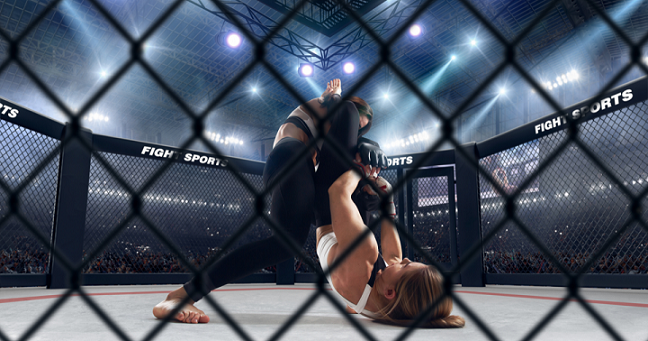The rise of mixed martial arts (MMA) or cage fighting in recent years has garnered immense global attention, amassing a dedicated fanbase. However, Barry Johnston, the chief instructor of the International Sabaki Karate-do TESHINKAI, expresses his concern that the true essence and remarkable value of traditional martial arts are being overshadowed and, in some instances, diluted. According to Johnston, this lamentable situation calls for reflection on how the noble teachings and profound wisdom of traditional martial arts are becoming lost amidst the frenzy of the modern combat sport spectacle.
A Clash of Ideals
Barry Johnston, an industry expert and advocate for traditional martial arts, explains that these ancient practices have always been highly regarded for more than just their physical combat techniques. Traditional martial arts embody a holistic approach to self-discipline, mental fortitude, and spiritual growth, deeply rooted in cultural heritage and philosophical principles. Passed down through generations, these techniques carry the weight of history and the wisdom of ancient masters.
In contrast, MMA places its emphasis on brutal and raw confrontations within the confines of a cage, often prioritizing spectacle and entertainment value over the rich traditions and values associated with martial arts. According to Johnston, this clash of ideals blurs the line between a genuine pursuit of personal growth and the quest for commercial success.
Commercialization Over Spirituality
The commercialization of MMA, Barry Johnston argues, has played a significant role in overshadowing traditional martial arts. With profit and audience demands as driving forces, promoters often prioritize sensationalism, violence, and the quest for viral moments. As a result, the spectacle may entertain the masses but fails to uphold the deep-rooted principles of honor, respect, and self-improvement that are central to traditional martial arts.
In contrast, traditional martial arts emphasize discipline, respect for opponents, and self-control. These practices encourage practitioners to strive for personal growth, physical fitness, and inner peace. Barry Johnston highlights the rigorous training regimes of traditional martial arts, which foster mental and emotional development, instilling values that extend beyond the training mat and into daily life.
The Lost Connection with Ancient Wisdom
Traditional martial arts are deeply intertwined with philosophy and spirituality, according to Barry Johnston. Drawing upon centuries-old teachings, they emphasize harmony, balance, and the cultivation of the mind, body, and spirit. Through practices like meditation, forms, and focused breathing exercises, practitioners connect with their inner selves and develop a profound understanding of themselves and their place in the world.
Regrettably, Barry Johnston observes that the current MMA landscape often fails to uphold these values. The focus on aggression, flashy techniques, and quick victories may captivate audiences, but it overlooks the deeper, transcendent aspects of martial arts that have the power to positively transform lives.
Preserving the Essence of Traditional Martial Arts
To rectify this sad situation, Barry Johnston believes it is crucial to rekindle the appreciation for traditional martial arts and their profound teachings. He suggests that a concerted effort by practitioners, instructors, and the wider martial arts community can achieve this goal. Here are a few steps that can be taken:
- Education and Awareness: Encourage practitioners, fans, and media outlets to delve deeper into the rich history and philosophy of traditional martial arts, fostering a greater understanding of their value and significance.
- Integration of Values: Incorporate the core principles of traditional martial arts, such as respect, humility, and discipline, into the training and promotion of MMA. By doing so, athletes can embody the essence of martial arts while still engaging in the competitive sport.
- Cultivating Respect: Encourage MMA organizations and fighters to demonstrate sportsmanship,

























